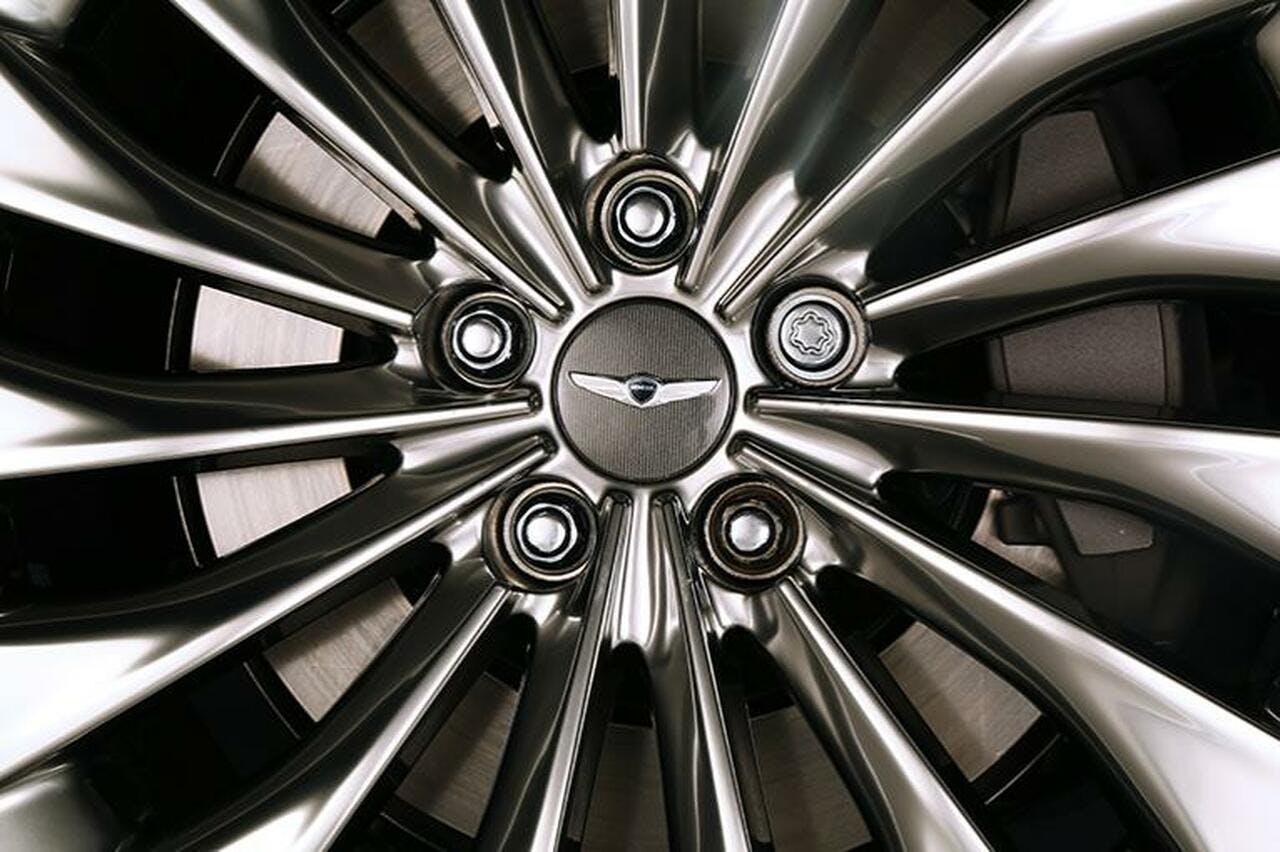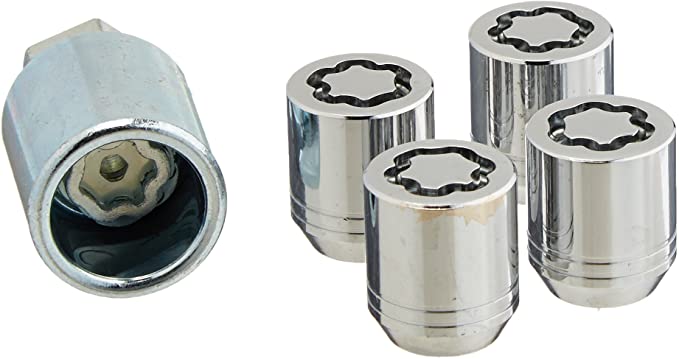What is a wheel lock?
Wheel locks, sometimes called tire locks, rim locks, or anti-theft lug nuts, are designed to deter thieves from stealing your eye-catching alloy wheels. Unlike regular lug nuts, which share a typical hexagonal shape, wheel locks are manufactured with a unique pattern on the head that requires a special socket, or “key,” to remove.
In actuality, there are a limited number of patterns used by manufacturers, so chances are, your wheel lock and key aren’t unique to your vehicle.
Wheel locks include four nuts, one for each wheel, and a matching socket key. The idea is that even if a would-be tire thief manages to remove all of the other lug nuts from your wheel, the locking nut won’t budge.
Rather than taking the time to force it off and risk getting caught in the process, a smart thief will move on to another vehicle--or better yet, find a new vocation.
Key Takeaways:
|
Are wheel locks a standard feature on all cars?
Numerous modern vehicles include wheel locks as a built-in feature, but not all cars have them. Sometimes, automobile owners buy wheel locks separately when fitting custom rims or acquiring a new wheelset.
The distinct look of anti-theft lug nuts sets them apart from the other nuts or bolts that secure the tire. In certain cases, a wheel lock might be concealed by a detachable plastic cap to maintain a consistent appearance.
How to remove a Wheel Lock?
Wheel locks are an effective anti-theft measure to protect your vehicle's wheels and tires. However, when it comes time for maintenance or tire replacement, you'll need to know how to remove them.
Step 1: Gather the necessary tools
To remove a wheel lock, you'll need the following tools:
Wheel lock key: This patterned socket corresponds to your specific set of wheel locks.
Tire iron: An L- or X-shaped socket wrench used to loosen and tighten lug nuts on a wheel.
Step 2: Locate the wheel lock
Identify the wheel lock on your vehicle's wheel. It will look different from the standard lug nuts and have a unique pattern matching the wheel lock key.
Step 3: Attach the wheel lock key to the tire iron
Remove the standard socket from the tire iron and replace it with the wheel lock key. Ensure that the key fits securely onto the tire iron.
Step 4: Loosen the wheel lock
Place the wheel lock key onto the wheel lock, ensuring that the pattern on the key aligns with the pattern on the lock.
Apply pressure and turn the tire iron counterclockwise to loosen the wheel lock.
Continue turning until the wheel lock has been completely removed from the wheel.
Step 5: Repeat the process for each wheel with a lock nut.
Step 6: Store the wheel lock key safely
Once the wheel lock has been removed, be sure to store the wheel lock key in a safe and easily accessible location. You will need it for future wheel maintenance or tire replacements.
Removing a wheel lock is straightforward with the correct key and tire iron. Always keep your wheel lock key handy for any car maintenance that requires wheel removal.
If you lose your key, contact the wheel lock manufacturer for a replacement or consult a professional mechanic for assistance.
Removing a wheel lock without the proper key can damage the wheel or the lock itself.
Where would I find my wheel lock key?
If you’ve never used your wheel lock key, it’s likely to be hanging out where the manufacturer initially stored it.
Try checking the following common places:
-
In the glove compartment
-
Under the spare tire, possibly in a separate compartment
-
In the trunk, possibly under the carpet or in one of the separate compartments
-
Under the driver’s seat
If you have used your lock key since purchasing your vehicle, try checking in the usual places, such as cup holders, door compartments, center armrests, seat-back pockets, etc.
What to do if you lose your wheel lock key?
Still can’t find your wheel lock key?
You may need to order a new one from the dealer or manufacturer. To do this, you will need the code corresponding to your particular key.
Generally, you can expect to pay between $20 and $120 per set.
If your wheel locks came with the vehicle, you could usually find the key code in the owner’s manual. You may also be able to bring your car to the dealer and have them remove the locks with a master key set.
If you purchased your wheel locks separately, you should be able to find the key code in the box or bag your set came in.
If you know your wheel lock's brand, make, or model, you’ll likely be able to find and order a replacement key online. Otherwise, you may need to have your wheel lock removed by a trusted mechanic.
Just be sure to call ahead to see if they can help!
|
Questions about brake service? We're here to help. NuBrakes offers quality, affordable brake repair, completed at your home or office by our ASE-certified technicians.
Get a free, no-obligation quote on mobile brake repair near you>> |


